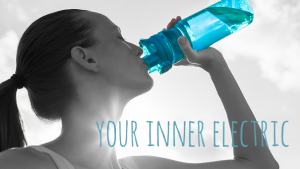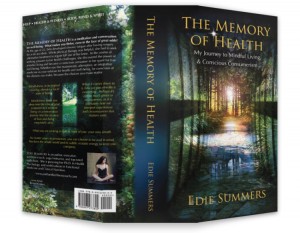How to Stress Less & Find Balance with Exercise, Nutrition, Electrolytes, etc.
0When did feeling “stressed out” become the new norm?
How did we get here? And, how do we move out of this chronic state of feeling stressed out?
Unchecked stress can cause worry, anxiety, irritability, panic attacks, fatigue, and depression
We have many tools at our disposal, including yoga, meditation, exercise, sleep, nutrition, and community.
How do we stress less? It might sound cliche, but it’s by finding balance.
I like to think of it as dynamic balance, where one is in a state of flow with life and self.
We find Balance again by:
- A balanced diet (balance carbs, fats, and protein – see infographic above) – Emphasize alkaline food
- Balanced Exercise (try yoga, meditation, walking in nature, hiking, etc.) – Aim for 30 min/day
- By balancing our Energy – swap out coffee (which depletes magnesium levels) for green superfoods
Did You Know?
Balanced cells lead to a balanced body.
Balance = Stress Management
A 1:1 ratio of calcium to magnesium equals cellular balance.
Many people aren’t getting enough magnesium to create cellular balance, and stress depletes your magnesium levels even further.
When our cells are relaxed and in balance, proper magnesium levels keep calcium outside of the inside of the cell, except when it’s called into action. When we are chronically stressed, we can develop a magnesium deficiency, which allows calcium to stay in our cells, after being called to action.
Check out the original article here for a much larger view of the infographic above, courtesy of Delicious Living. The infographic contains wonderful information on how to regain balance from chronic stress, which can lead to depletion of magnesium levels, in part contributing to the feeling of being stressed out.
How to Harness Electrolytes for Balanced Health
by Jack Challem
Magnesium
Often overlooked, magnesium is the second most abundant mineral in bone. However, its roles are multifaceted, playing parts in more than 300 enzyme reactions affecting muscle production, nerve function, blood sugar regulation and blood pressure.
Carolyn Dean, MD, medical director of the Nutritional Magnesium Association, points out that muscle twitches and spasms (think cramps or charley horses) are a common sign of magnesium deficiency. The mineral often helps with muscle tightness caused by stress and hyperactive behavior.
Dose: The RDA for adults ranges from 310–420 mg daily. A good target is 400 mg of magnesium daily in divided doses. Too much at once can have a laxative effect.
Your body teems with electricity, albeit at a very low level. Calcium, magnesium, potassium and sodium are your primary electrolytes, meaning that each of these minerals carries an electrical charge that influences how they work and interact with cells.
An electrolyte imbalance or deficiency in these minerals can cause serious health problems, even death. For your heart to beat, calcium sends a charge that contracts your heart muscle, and magnesium sends a charge that relaxes it. When you exercise, you lose electrolytes in sweat, especially potassium and sodium. That’s why smart athletes are quick to replace this loss with electrolyte-containing sports drinks, such as potassium-rich coconut water.
“Sometimes people consume too much of one type of electrolyte, such as calcium or sodium, and not enough of others, such as magnesium and potassium,” says Michael Miles, NMD, of Tucson, Arizona. “It’s important to get enough of the latter through food or supplements.”
Electrolytes have myriad other functions, such as maintaining strong bones and the body’s fluid balance.
Calcium
The body’s most abundant mineral, calcium is mostly found in bone. Bone isn’t a static tissue—old cells continuously get replaced with new cells and fresh calcium. However, some doctors question whether people take too much calcium. Thomas E. Levy, MD, author of Death by Calcium (Medfox, 2013), points out that vitamin C regulates the formation of the bone matrix (minerals and protein) and contends that low intake of this vitamin is a bigger factor in osteoporosis than low calcium.
Dose: The RDA for adults is 1,000–1,200 mg daily, but you can get much of that in foods, including vegetables and dairy. Consider modest supplementation, such as 500 mg daily of calcium citrate or carbonate. Add 5,000 IU vitamin D to aid calcium absorption.
Potassium
You lose a lot of potassium in sweat, and chronically low levels can contribute to hypertension and heart rhythm abnormalities. Unless you eat a lot of fruits and veggies—the richest potassium sources—there’s a good chance you’re low in this mineral. The problem can be compounded by taking loop diuretic drugs, which hasten potassium excretion. And drinking too many sugary cola drinks also depletes potassium, leading to muscle weakness, fatigue and in some cases paralysis. Taking potassium bicarbonate can counter osteoporosis, and it also reduces the body’s calcium loss.
Dose: Follow label directions. People with kidney disease or low levels of the hormone aldosterone, or who take heart medications, should not exceed 99 mg potassium daily from supplements except under a doctor’s guidance. Too much can also cause an abnormal heartbeat and cardiac arrest. Most multi-mineral supplements contain safe amounts of potassium, but the bicarbonate form may be preferred. The richest sources of potassium, however, are vegetables and fruits, and their intake is safe.
Sodium
Too much sodium causes high blood pressure, right? Not so fast. A recent government report downplayed the role of sodium because of conflicting research. Studies going back 25 years suggest that excess sodium is only part of the problem, mainly because only about half of people with hypertension are salt sensitive. Low levels of other minerals, such as potassium and magnesium, may also be contributing factors. And the other half of the salt molecule—the electrolyte chloride—might be a bigger problem.
Dose: You don’t need to increase salt intake unless you exercise in a very hot climate.
Check out the original article, plus specific recommendations by Delicious Living: http://goo.gl/Z43Qgk
High-quality supplements offered by the natural foods industry changed my life. I am very sensitive to artificial ingredients, GMO’s, fillers, and low-quality ingredients (did you know if you are sensitive to something, it can create inflammation in the body – a big no-no!).
When I developed chronic fatigue, I turned to the natural foods industry to seek answers. I began working in the supplements department of a natural foods store, and taking high-quality supplements (I’ve tried hundreds of them to find which ones work for me), and by learning how to eat well, I improved my energy levels and well-being significantly. You can read more about my journey here and in my book, The Memory of Health (see link below).
I cannot take prescription drugs, so for me, having access to high-quality supplements was a game-changer.
In my quest for answers to my health challenges and well-being, I became a Conscious Consumer.
I take them every day, and they make a BIG difference in the quality of my life and well-being. I discuss supplements and holistic living in great detail in my book, The Memory of Health.
You can find my book here.
#LuluAuthor Edie Summers shares advice for those suffering from a chronic condition in her book #TheMemoryofHealth: https://t.co/auyNYL75hFhttps://t.co/hbMcmygIlr
— Lulu.com (@Luludotcom) March 28, 2017





Comments